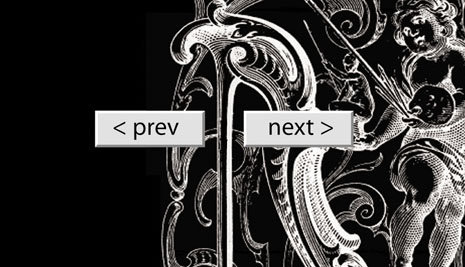3/7/2008
Richard Wright
HTTP, London
How to Talk to Images. The artist has compiled a database of 50,000 random Internet images as the raw content for two artworks, creating a world where we can read pictures, browse libraries of endless images or learn to draw with alphabets.

/No one is sure how many images there are on the Internet. Google has
nearly a billion. Some say it is hundreds of times more than that./
For "How to Talk to Images", Richard Wright has compiled a database of
50,000 random Internet images as the raw content for two artworks. "The
Internet Speaks" and "The Mimeticon" use this database to create a world
where we can "read" pictures, browse "libraries" of endless images or
learn to draw with alphabets.
In this era, finding our way through the world of images is so
overwhelming, that the dominant mode is to "search" rather than to
"see". An image is an answer to a question, a search query. The Internet
Speaks gives us one of the simplest imaginable ways of searching this
set of images, stepping through them, one by one in random order,
without context. In contrast, The Mimeticon is a wilfully complex and
'baroque' search engine that allows us to search for images by visual
similarity rather than by typing in keywords. These 'search images' are
'drawn' using letters from the history of the alphabet.
As part of How to Talk to Images, Richard Wright's first solo exhibition
in London, a selection of Wright's animated films demonstrates the
development of his current interest in the Baroque. The exhibition is
also the occasion of publication of a limited-edition poster featuring
an essay by the artist illustrated by the entire visual history of the
Western alphabet -- from its pictorial Egyptian origins 5,000 years ago
to its perfected form under the Romans, as well as a new book
documenting the artists twenty year long practice.
Richard Wright has been making digital animation and interactive pieces
since the eighties. Heliocentrum, an animation about Louis XIV, was
described by writer Hari Kunzru as "...an amazingly effective way of
showing how a sovereign manipulated power" and The Bank of Time was
nominated for a BAFTA in 2001. Richard was most recently a member of
artists group Mongrel and is currently working on an urban media project
called "decorative surveillance". Since summer 2007 he has been Artist
in Residence at Furtherfield.org.
Opening Reception: Friday 4th July 6-9pm
HTTP
71 Ashfield Rd; Unit A2, Arena Business Centre - London
Hours: Fri-Sun 12noon-5pm
Free admission



